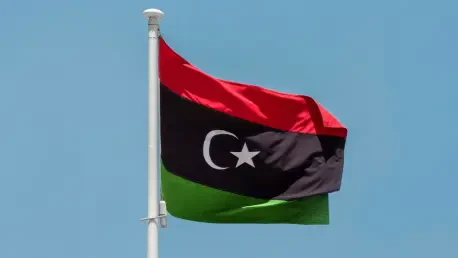In a landscape marked by economic turbulence, Libya faces significant hurdles with a reported foreign exchange deficit of US$5.9 billion for the first eight months of the current year, despite achieving a budget surplus of LD 12.8 billion. This stark contrast underscores the urgent need for innovative strategies to stabilize the national economy, particularly as the Libyan dinar struggles against foreign currencies. Amid ongoing political and social challenges, authorities are rolling out a series of coordinated policies aimed at restructuring the financial framework. The Central Bank of Libya (CBL) and the Ministry of Economy and Trade have emerged as key players in this endeavor, focusing on regulating imports, preserving foreign reserves, and modernizing financial systems. Their collaborative efforts signal a determined push to address deep-rooted issues, offering a glimmer of hope for sustainable growth in a nation long plagued by instability.
Strengthening Trade Regulations and Currency Stability
A pivotal aspect of Libya’s economic strategy involves tightening control over imports and safeguarding foreign exchange reserves. During a critical meeting in Tripoli, CBL Governor Naji Issa and Minister Mohamed Al-Hwej outlined stringent measures to curb unofficial transactions. Imports exceeding US$100,000 now require an official bank transfer, with limited exceptions for small traders who must verify the source of their funds. Additionally, a ban on re-exporting goods with over 70% foreign components aims to protect currency reserves from depletion. These policies reflect a deliberate shift toward transparency in trade practices, prioritizing domestic economic health over unchecked international dealings. Governor Issa has also pledged to tackle the liquidity crisis swiftly, with a target to reduce the dinar’s foreign exchange rate to below LD 7 per US dollar. Such commitments highlight a focused approach to stabilizing the currency while addressing immediate financial pressures facing the country.
Modernizing Systems for Long-Term Economic Resilience
Beyond immediate trade restrictions, Libya is investing in systemic reforms to enhance oversight and align with global standards. A commodity tracking system, slated for launch in early November, will trace imported goods from origin to end consumer, aiming to eliminate illicit trade and ensure accountability across supply chains. Complementing this initiative, the adoption of the Harmonized System (HS) code for product classification will standardize customs processes, facilitating better regulation of market prices and specifications. Simultaneously, advancements in digital infrastructure are evident with a 92% surge in points of sale and a 75% increase in e-transactions over recent data. These efforts to expand e-payment services signify a broader vision to modernize financial transactions, reducing reliance on cash and fostering a more inclusive economic environment. Together, these measures lay the groundwork for a robust framework that addresses both current vulnerabilities and future aspirations for economic stability in Libya.









